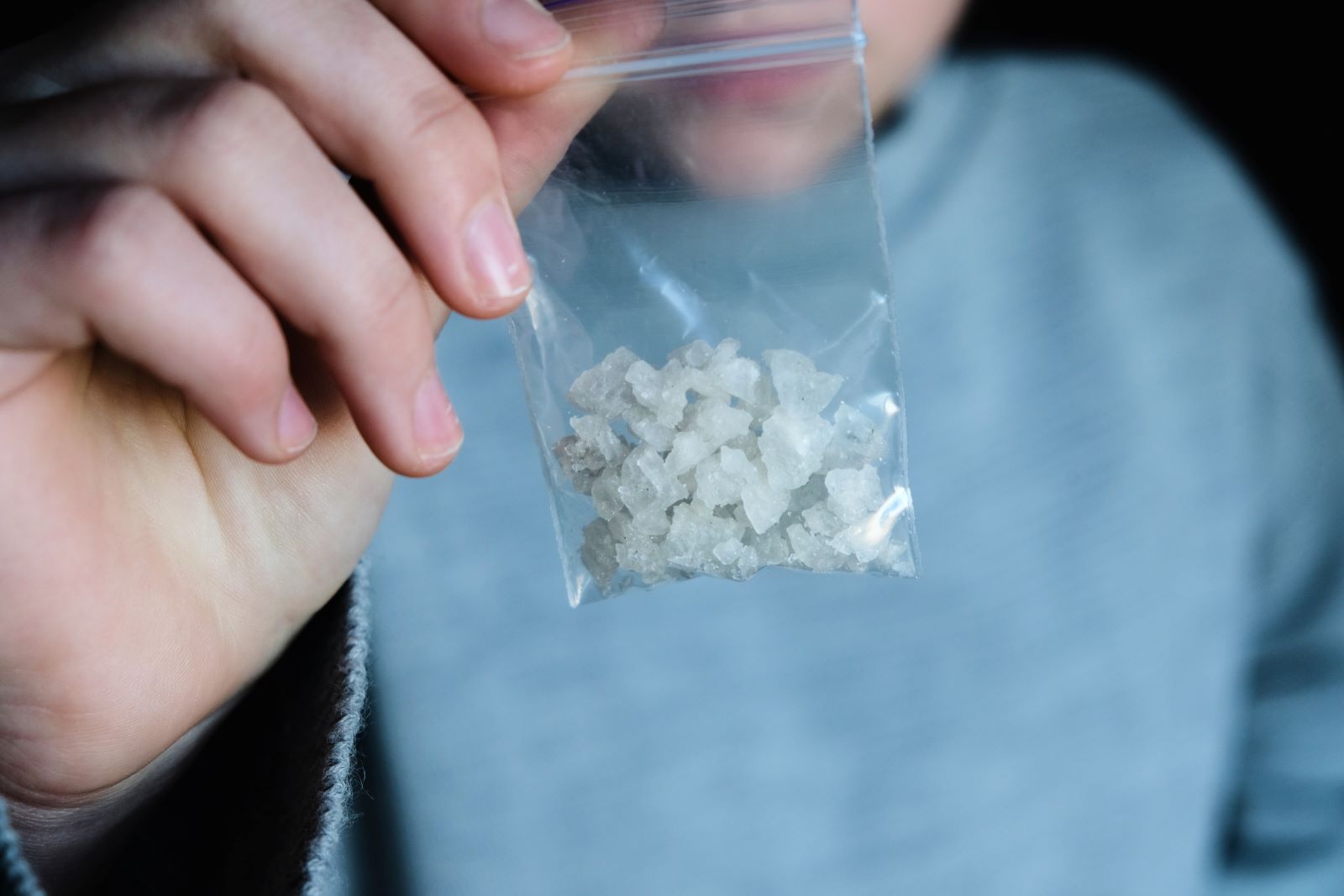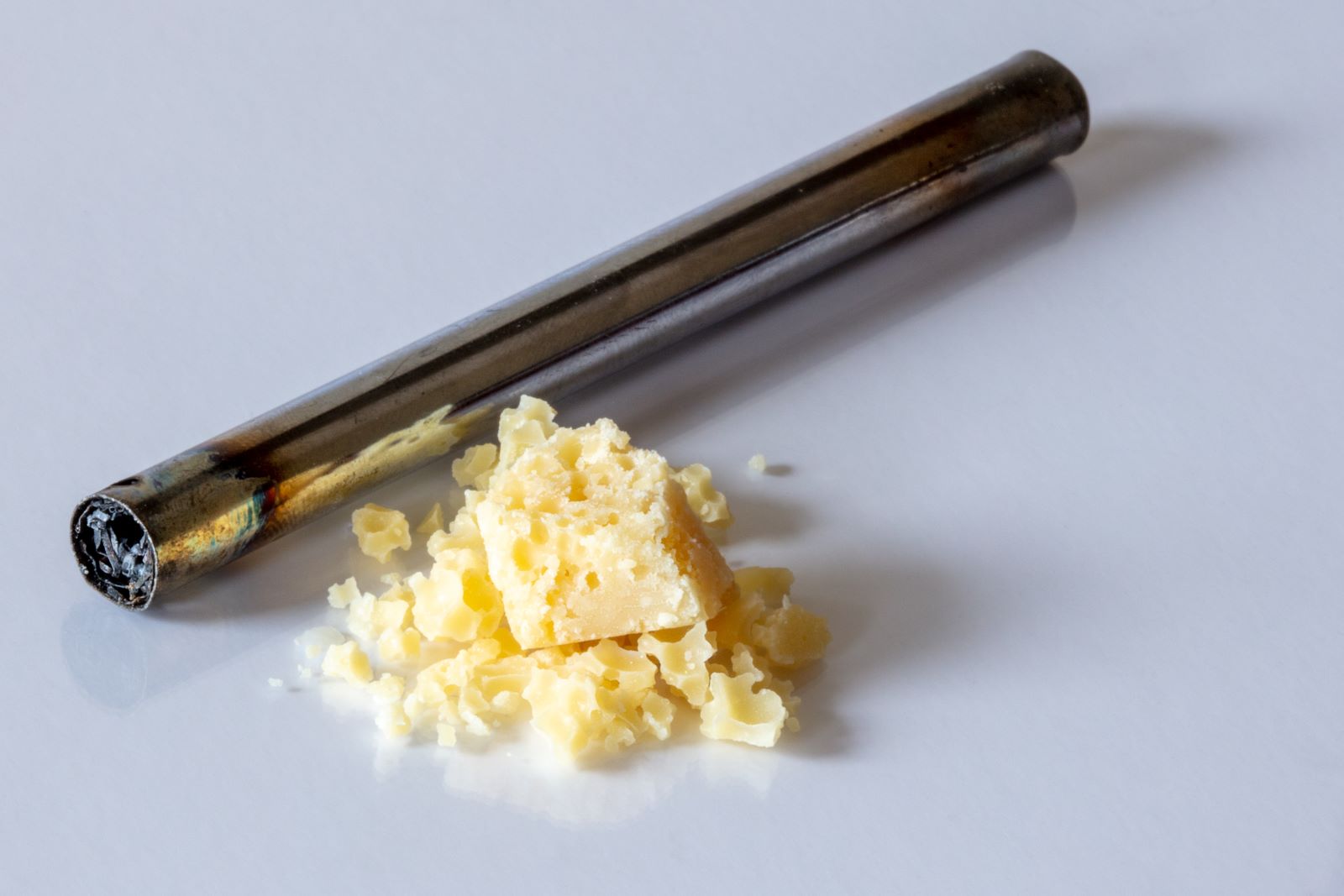Table of Contents
Crack Cocaine: The Facts
Crack is a form of cocaine that starts from the coca plant – which often leads to the question “Can you overdose on crack?” since it’s originally naturally sourced.
Before being trafficked into other nations, especially the United States, it is frequently produced in Colombia, Bolivia, and Peru. It’s typically crushed into tiny rocks and gets its name from the way smoking crack crackles due to the heat. Crack has the potential to be incredibly dangerous due to additives and cutting agents. Most commonly, baking soda is added to the crack. Powder cocaine is also addictive and is consumed by snorting it through a straw or other means. It’s powerful but has different short-term effects than crack.
Crack is most commonly obtained by young adults from friends or by buying it on the street. They inhale the vapor produced by heating it in a pipe while smoking it. The heated pipes can occasionally cause burns on the lips or hands of those who use them.
Crack’s High Potential For Addictive Habits
Once consumed, crack produces a brief euphoric high[1]. When compared to a 30- to 60-minute cocaine high, this high lasts only 5 or 10 minutes at most. Crack is initially so habit-forming due to its brief high that anyone could become reeled in, even if it’s their first time.
Because of the short duration of a high and the rapid come down, users tend to use multiple doses of crack and take increasing amounts throughout the day. This means people are more likely to develop a substance use disorder than they would with conventional cocaine.
Crack has a reputation as a highly abused drug due to the rapid onset of a high and the common pattern of binging and crashing. The pattern might go on for days without a break, not even for sleep. Cocaine addiction is different in that the high lasts much longer, and continual doses are less likely.
Cutting Agents Used With Crack Cocaine
Cocaine is dissolved by crack producers in a solution of water, baking soda, or ammonia. These ingredients are heated until a solid is formed from them.
Users smoke the substance after it has been dried and broken apart. When narcotics are smoked, the effects are felt considerably more immediately and intensely than when they are snorted or taken orally.
Crack Withdrawal Symptoms
The body of someone who struggles with crack cocaine addiction has become reliant on the drug. If they don’t take the drug for a specific period of time, they start to feel sick. The symptoms of this unpleasant feeling, known as withdrawal, are brought on by the body adjusting to the abrupt absence of the substance on which it depends.
Some withdrawal symptoms include:
- Depression
- Irritation
- Tremors
- Difficulty sleeping or increased sleeping
- Body aches
- Changes in appetite
Within 24 hours of the last dose, crack withdrawal symptoms can start, and they can last for up to five days. These symptoms can differ from person to person, but they are frequently unpleasant and can make it difficult for people to stop using the drug.
Identifying A Crack Overdose
The American Society of Addiction Medicine lists the following as some typical indications of crack cocaine overdose [2]:
- Unexpected, perplexing behavioral changes
- Dry mouth
- Pale or flushed skin
- Physical shaking
- Clammy skin
- Vomiting
- Diarrhea
- Disorientation
- Delusions
- Chest pain
Potential Causes Of A Crack Overdose
Consuming any harmful or illicit substance has varying levels of negative health consequences, including overdose. Even when accidental or unintentional.
It is particularly dangerous because it is difficult to determine how much of the substance will result in an overdose. The precise amount of crack cocaine required to create an overdose depends on a number of variables, including:
- Changes in tolerance levels brought on by using the drug more or less than usual
- History of overdose
- Using crack cocaine along with alcohol or another drug, such as an opiate, or both
- Having ongoing medical conditions
- Changes to the quality of the crack you receive
How Much Cocaine Will Cause An Overdose?
There is no set amount of cocaine that will cause an overdose. What may cause one person to overdose might not for another. There are tolerance, metabolism, age, and overall health to consider when asking this question.
When a person starts to become tolerant of a drug, they need more of it to mirror the euphoria that was once experienced for a much smaller dose. As a person continues to chase that high, they might consume more and more[3]. This behavior is the perfect storm for a person to have an overdose.
Increased Risk Factors For Crack Addiction and Overdose
The risk of overdose becomes substantial when mixing crack with other substances like alcohol, opiates, or other prescription drugs.
If a person has underlying health conditions (whether they are aware of them or not), it could make them more at risk of an overdose than someone who doesn’t experience that.
Crack Overdose Prevention
Certain signs and symptoms are frequently experienced during a crack overdose and are simple to recognize with enough education. Even at very modest dosages and in first-time users, a crack overdose can still occur, making the use of crack harmful at any dosage.
Crack is also extremely addictive, and long-term crack use has a terrible impact on the user’s physical and mental health. Given the risks associated with both acute and chronic crack use, abstaining from its use is the safest and healthiest path.
What To Do During A Crack Cocaine Overdose
If you or someone you know is overdosing on crack, immediately seek medical attention by calling 911. You can temporarily aid their discomfort with a cold compress on the head. If you are in an area where an ambulance cannot reach you, try to get the person to the emergency department right away.
Physical Effects of Crack
The physical effects of crack begin to take form shortly after a person becomes addicted. You might first see them begin to lose weight. Then you might notice an untidy or disheveled appearance. Finally, their personality may change completely until you no longer recognize them.
Short-Term Side Effects
Crack has a variety of immediate side effects that one could encounter. Any symptoms, such as an elevated heart rate, dilated pupils, and acute agitation during the “come down,” could also be present. These consequences, however, have the potential to be lethal.
Long-Term Health Complications
Crack’s long-term effects are terrible. In addition to the usual risks, crack users may experience severe respiratory issues such as coughing, shortness of breath, lung damage, and bleeding.
Unfortunately, there are still negative effects. Long-term use increases the risk of heart attack, blood pressure fluctuations, starvation, infertility, and sudden death.
Long-Term Physical Effects of Crack Use
The long-term use of crack might contribute to extreme weight loss leading to anorexia, high blood pressure, and cardiovascular problems, including a higher risk of a heart attack.
Long-Term Psychological Effects of Crack Use
A person’s mental health will start to deteriorate when using crack long-term, which could eventually lead to psychosis. Crack users are more likely to have the psychological trait known as anxiety sensitivity, which increases the risk of getting PTSD and exacerbates a number of mental health conditions.
Crack Addiction Treatment
There are multiple treatment options for crack cocaine addiction. If you or a loved one is currently addicted to crack, you have options. What works for one person might not work for another, so be sure to discuss all options with a medical provider.
Intervention
If you suspect a loved one is addicted to crack, you might need to set up an intervention. Do not bombard the person with questions or pressure them to answer your questions. The best course of action is to lead with compassion and love rather than force or demands. For best results, consult a healthcare provider for guidance.
Detox
If you are aware that a loved one is using crack habitually to the point of addiction, they must undergo detox at a treatment facility. There, they will begin to recover under the care of an experienced team equipped to handle to difficult process that is detoxing.
Inpatient or Residential Treatment Program
Inpatient residential treatment programs are perfect for those who have undergone detox and now need to enter a program to keep from relapsing.
Attending an inpatient program gives the person time away from their daily lives that could inspire or influence the person to begin using again. Inpatient programs block out the external factors that could trigger relapse by providing a safe and compassionate place to recover.
Outpatient Treatment Program
For continued addiction treatment, outpatient treatment programs are designed to keep the person away from using again while providing a supportive, judge-free environment. This option should follow a stay at an inpatient facility or after completing a higher level of care.
Don’t Fall Prey To A Crack Overdose. Safely Navigate Addiction Treatment At Infinite Recovery
You are not alone. If you or a loved one is addicted to crack, there is nothing to be ashamed of. Crack can pull anyone into the cycle of addiction at any time. At Infinite Recovery, our treatment center has helped thousands of individuals and families recover from addiction. Let us help you. Contact us right away to get help.
Sources:
[1] What is crack cocaine? what does it look like? what are the risks? (n.d.). Retrieved from https://www.justice.gov/archive/ndic/pubs3/3978/3978p.pdf on 2023, January 6
[2] Patterson, E. GoodRx. 2022, December 5. What are the signs of a meth overdose? here’s when to call 911. Retrieved from https://www.goodrx.com/methamphetamine/overdose on 2023, January 6
[3] NIDA. 2022, December 19. Cocaine drug facts. Retrieved from https://nida.nih.gov/publications/drugfacts/cocaine on 2023, January 6


















